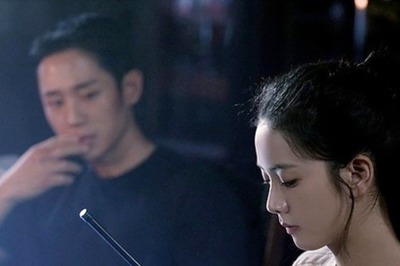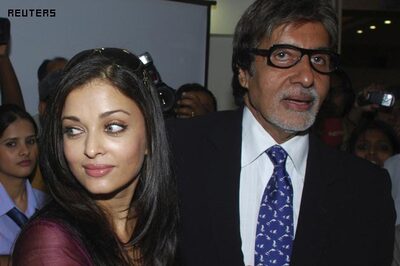
views
Ahmedabad: The riots that followed the Godhra train burning incident were a case of "permitted violence" and not a result of administrative failure, Zakia Jafri's lawyer argued on Thursday, asking why curfew was not imposed immediately in the other cities of Gujarat.
"It is not a case of administrative lapse or error but a case of permitted violence - the possibility of which can be examined only after a trial in court," advocate Mihir Desai argued before Metropolitan Magistrate BJ Ganatra here.
Supreme Court had earlier set up a special investigation team to probe the complaint filed by Jafri about alleged complicity of Chief Minister Narendra Modi and others in allowing the riots.
She has now filed a petition before the magistrate challenging SIT's report giving clean chit to Modi. Jafri's husband and former Congress MP Ehsan Jafri was killed in the riots.
Referring to Godhra incident in which 59 kar-sevaks were killed, advocate Desai said some violence was bound to happen in the aftermath. Curfew was imposed as early as 10 am on February 27, 2002 (next day) in Godhra, and if police wanted to control the violence, "curfew could have been imposed in other cities also", he argued.
Instead, authorities decided to take the bodies of dead kar-sevaks to Ahmedabad by handing them over to Vishwa Hindu Parishad office bearers, advocate Desai said. "The decision to shift bodies to Ahmedabad by handing them over to VHP officials, particularly to then general secretary Jaideep Patel, is a wrong, incorrect decision, filled with criminal mind," Desai stated, adding that it further fanned communal tension in the city.
"Had the removing of bodies and transporting been done by police, the situation would not have gone out of control," Desai said, adding this was done "to engineer a situation so that tension could be created".
The decision to hand over bodies to VHP officials would have been taken only by a person "in authority", he said. Referring to Godhra official Mahendra Nalwaye's letter allowing Jaideep Patel to take the bodies to Ahmedabad, Desai said Nalwaye had acted in an irresponsible manner.
Desai also said police and Intelligence officials had given inputs about mobilisation by VHP 20-25 days prior to the Godhra carnage. This, he said, was also corroborated by Ashok Narayan, a government official. Regarding the February 27 bandh call given by VHP, Desai argued that ruling BJP too supported it, but Modi, in his statement to SIT, said he came to know of the bandh call next day through newspapers.
"The Chief Minister of a state comes to know about the bandh call, supported by his party, through newspapers. And, SIT has believed his statement without further examination," the lawyer pointed out. If a policeman, while probing an offence, learns about other offences committed by the person, he should probe other offences too, Desai said.
But "SIT has only looked at the allegation and not examined further evidences against the Chief Minister," he said. SIT, in its interim report submitted to Supreme Court in May 2010, had said it was experiencing several difficulties during the inquiry such as destruction of vital records related to the 2002 violence. "The Gujarat government did not make available records," Desai argued.
The then Ahmedabad Police Commissioner Pande produced 3,500 pages of evidence related to violence giving "fresh version of facts" in 2011. But he had twice given statements to SIT in which he created an impression that all records pertaining to 2002 violence had been destroyed, he argued.
Pande was never asked by SIT why did he retain records and why he was disclosing them after nine years, advocate Desai said. "SIT asks why (suspended IPS officer) Sanjeev Bhatt, after eight years, says he attended the meeting on February 27, 2002. However, it fails to ask Pande why he was silent for nine years despite having records," Desai argued. The hearing will continue on Saturday.




















Comments
0 comment